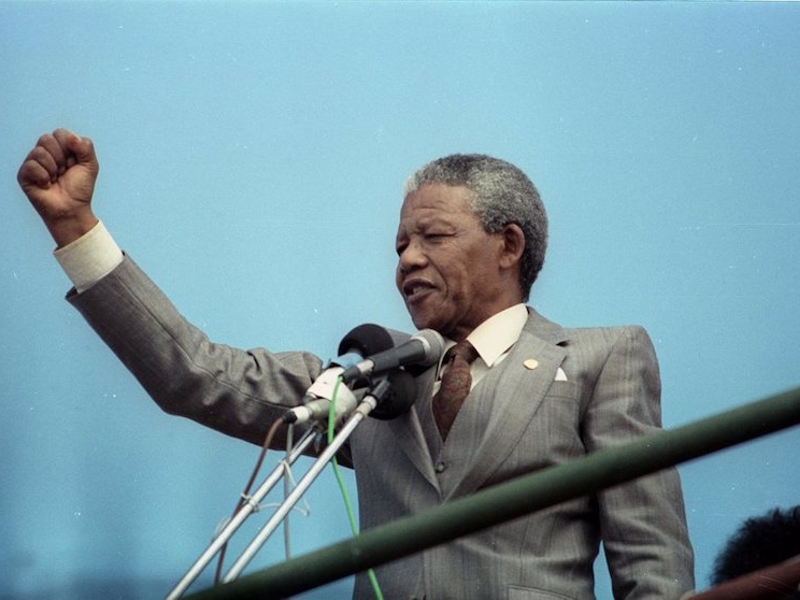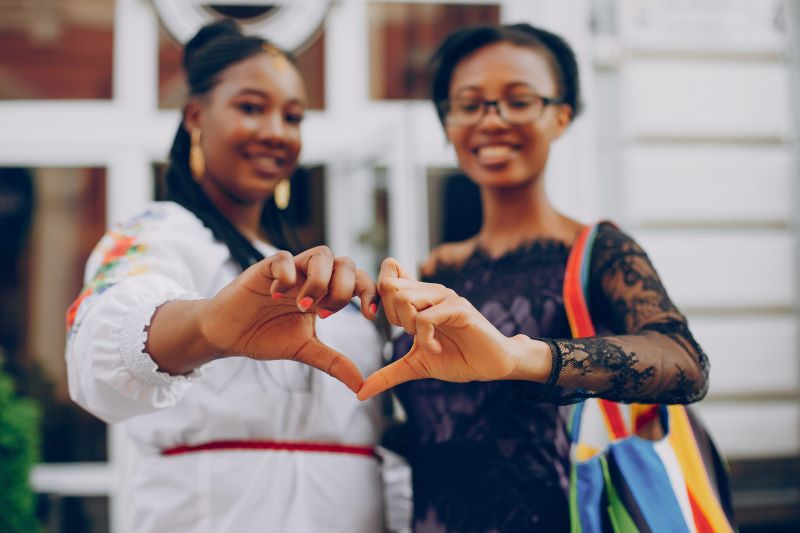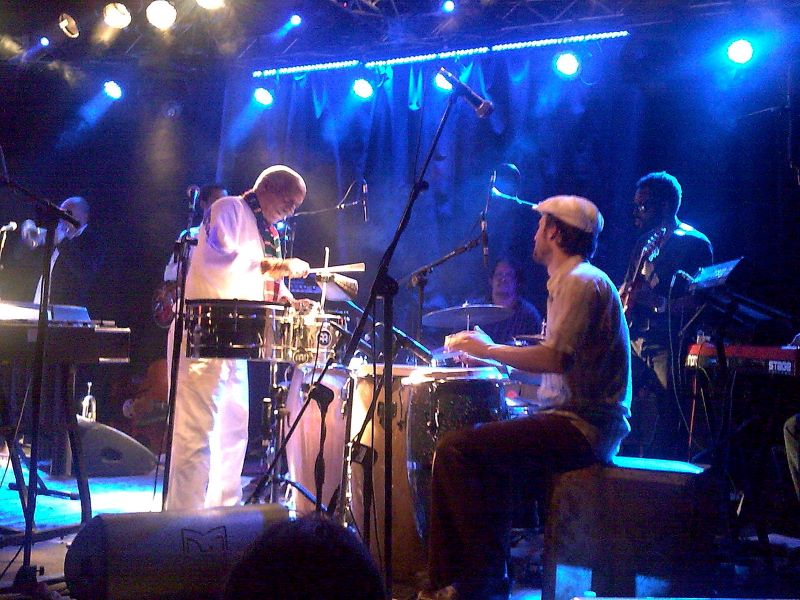Nelson Rolihlahla Mandela was born on July 18, 1918, in Mvezo, Cape Province, Union of South Africa. He was given the forename Rolihlahla, a Xhosa term that means “troublemaker”, but later in life, he became known by his clan name, Madiba. His patrilineal great grandfather was king of the Thembu people, and his father, Gadla Henry Mphakanyiswa Mandela, was a local chief and councilor to the monarch.
Nelson renounced his claim to the chieftainship to become a lawyer, and he attended South African Native College, later called the University of Fort Hare, and studied law at the University of the Witwatersrand.
In 1944 he joined the African National Congress (ANC), a Black-liberation group, and openly opposed the apartheid policies of the ruling National Party. In 1952, Mandela and Oliver Tambo established South Africa’s first Black law practice, specializing in cases resulting from the post-1948 apartheid legislation. Shortly after, in 1955 he was involved in drafting the Freedom Charter, a document calling for nonracial social democracy in South Africa.

Due to his activism and open opposition to apartheid, he was a frequent target of police. They often retaliated by banning him from travel and making speeches. In December 1956, Mandela, along with 150 other people, was arrested on charges of treason, for which they were eventually acquitted.
In November of 1962, Mandela was thrown in prison, where he would remain for 27 years. During his prison sentence, he became very ill with tuberculosis and received the lowest level of care as a Black inmate, but he also earned a Bachelor of Law degree from the University of London.
As pressure for his release persisted, the South African government participated in talks with him to no avail, until Frederick Willem de Klerk came into the picture. Mandela’s release was finally announced on February 11, 1990.
After his release, Mandela fought for foreign powers to maintain their pressure on the South African government for constitutional reform. While he stated that he was always committed to working toward peace, he declared that the ANC’s armed struggle would have to continue until the Black population eventually received the right to vote.

In 1991, Mandela was elected president of the African National Congress, and in 1993, he was awarded the Nobel Peace Prize along with President de Klerk for their contributions to the demise of apartheid.
On April 27, 1994, South Africa held its first democratic elections, and Mandela was inaugurated as the country’s first Black president on May 10, 1994, at the age of 77. de Klerk was named Mandela’s first deputy.
Mandela officially retired from politics in 1999 but continued his advocacy work for the rest of his life. He passed away on December 5, 2013, at the age of 95 in his home in Johannesburg, South Africa.
Sources:

Kassidy Garland has had a great appreciation for reading and writing since she was young. She graduated from West Chester University in 2017 with a Bachelor’s Degree in English & Women and Gender Studies. With a concentration in creative writing, Kassidy has 5 years of experience writing blogs, articles, and for social media. Kassidy is also pursuing a Master’s degree in IT with a concentration in Web Development. Based out of Philadelphia, Kassidy loves to write about a number of topics and looks forward to sharing her passion with those at FunTimes Magazine.





